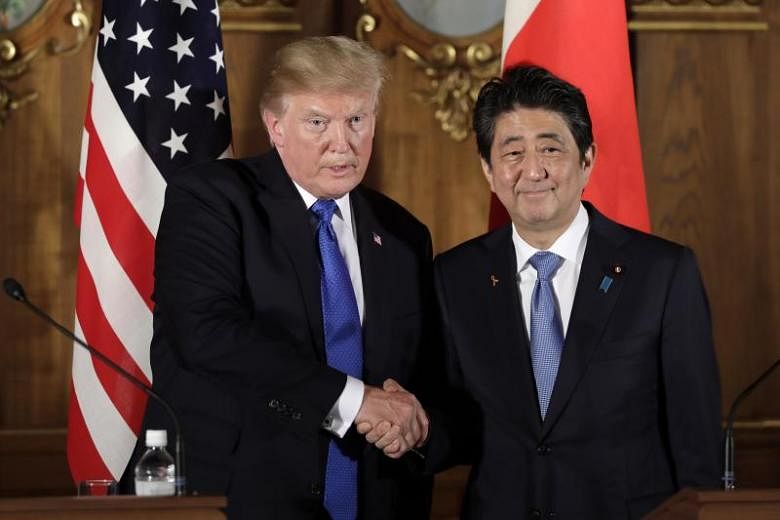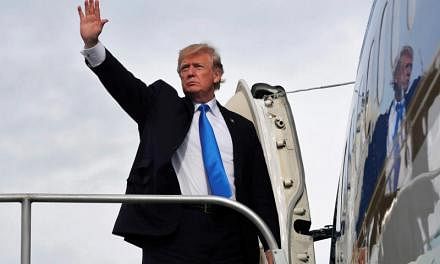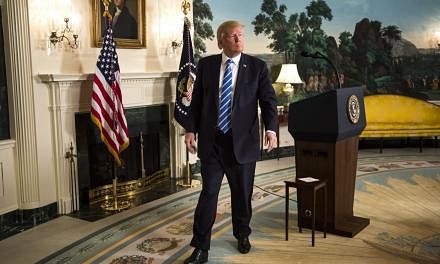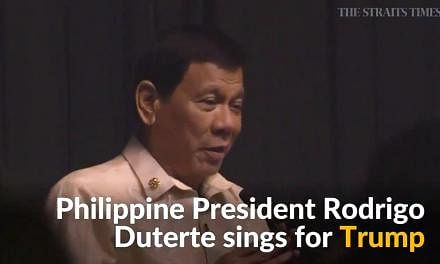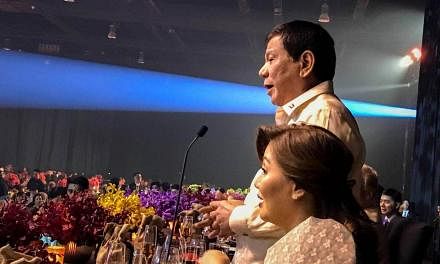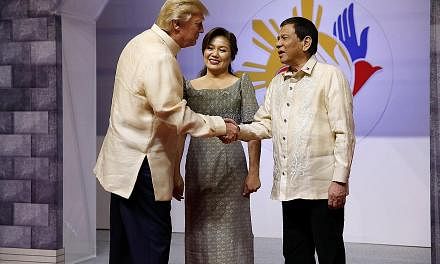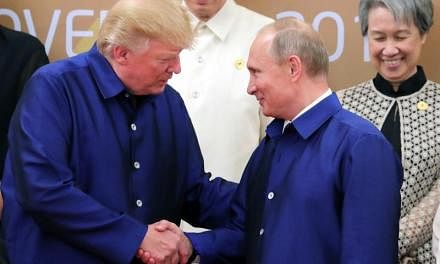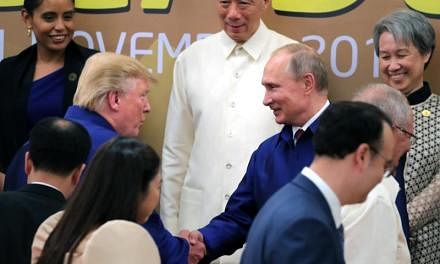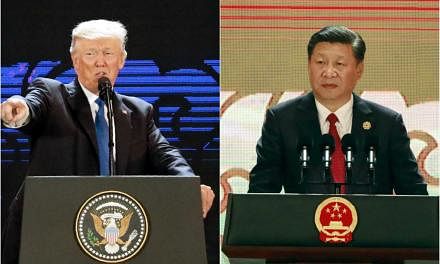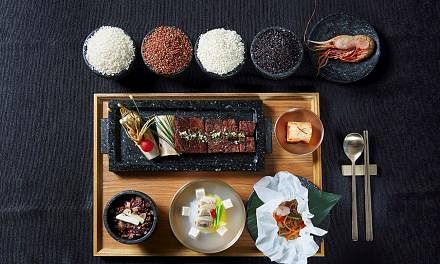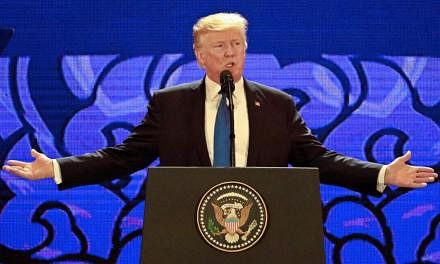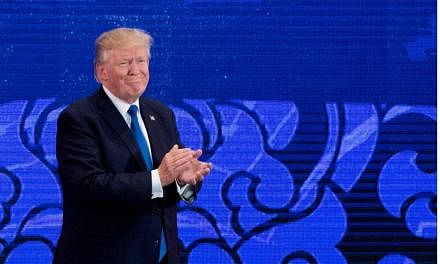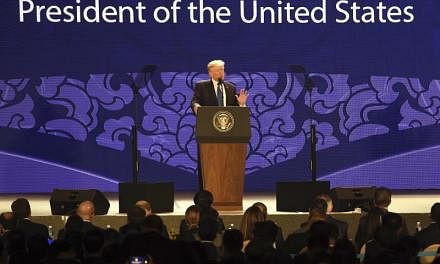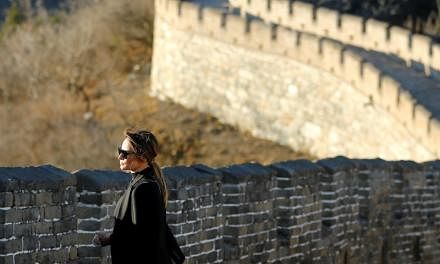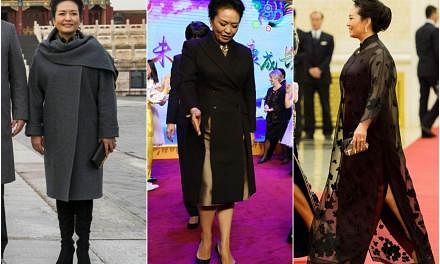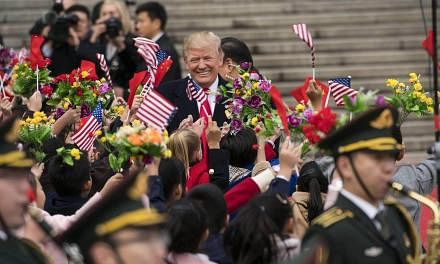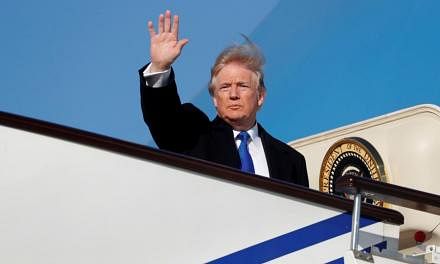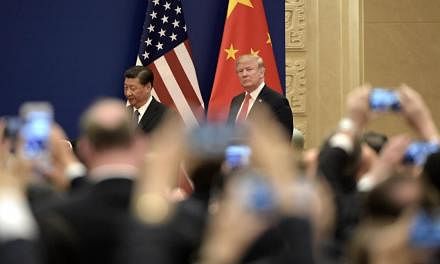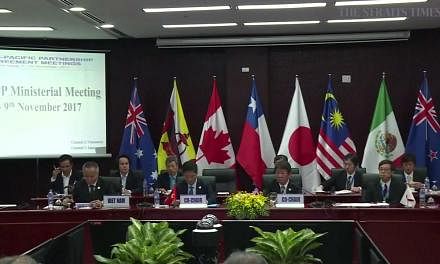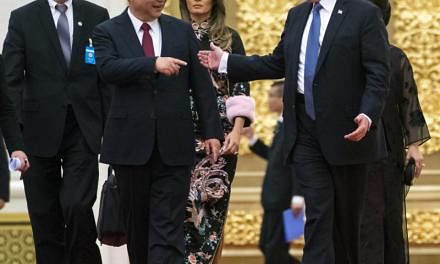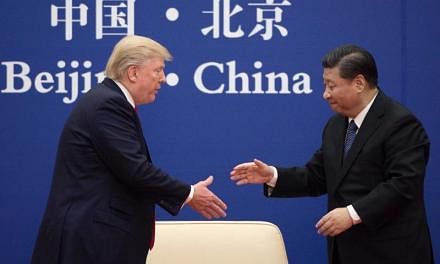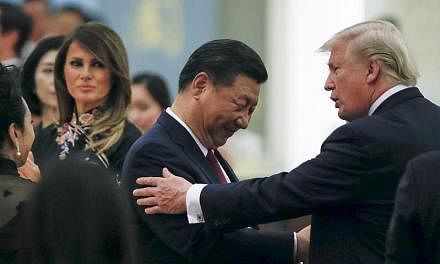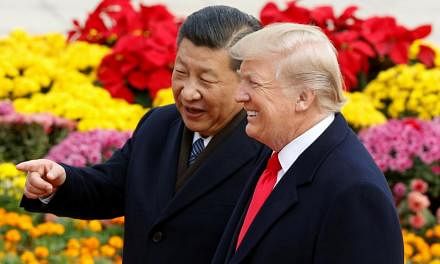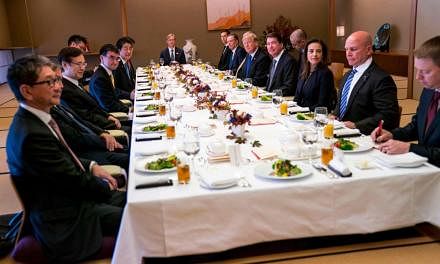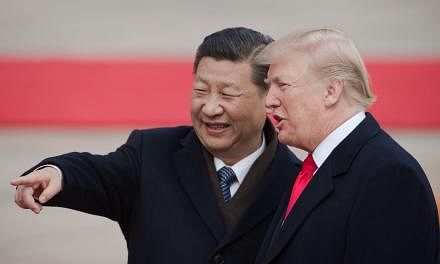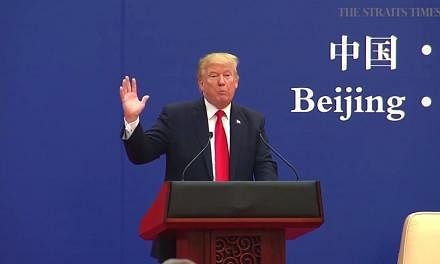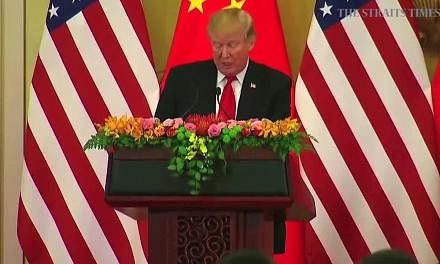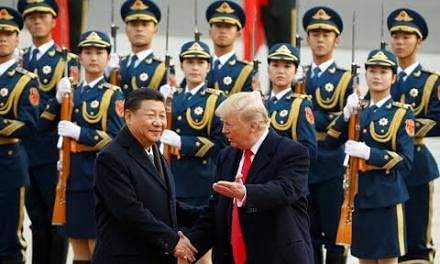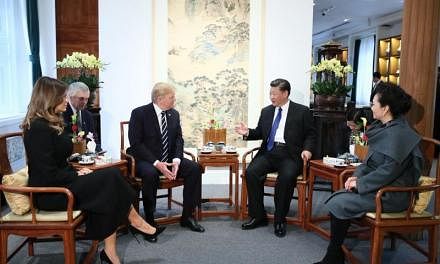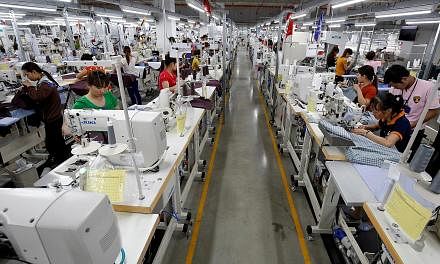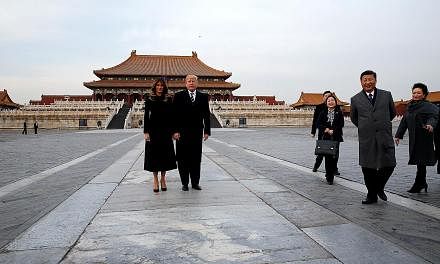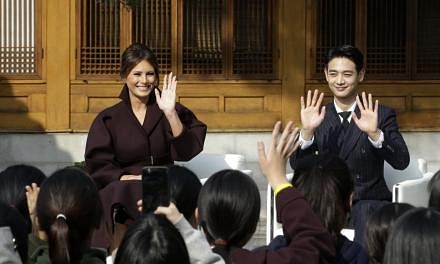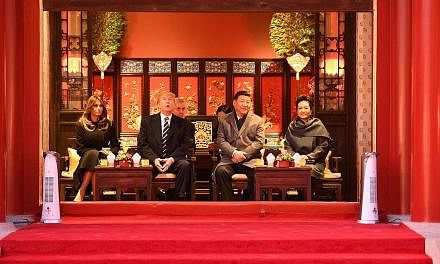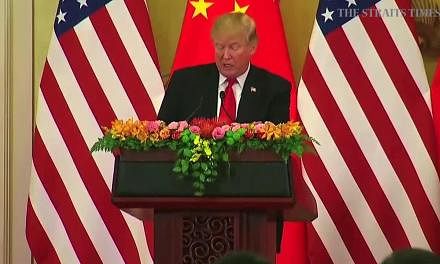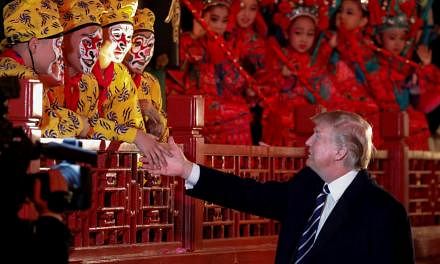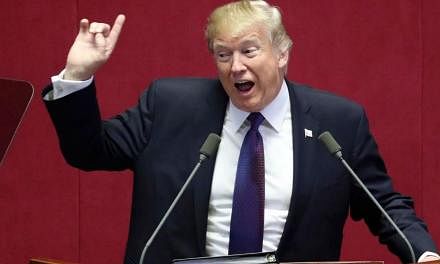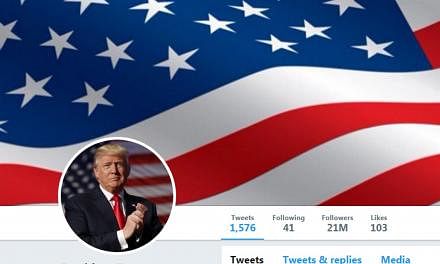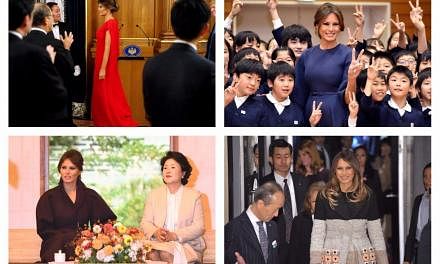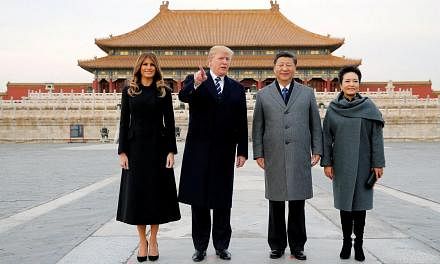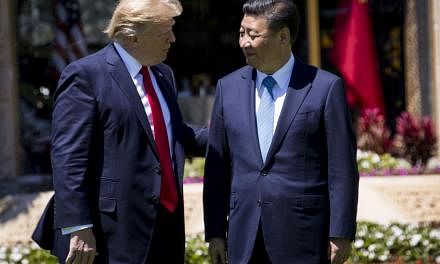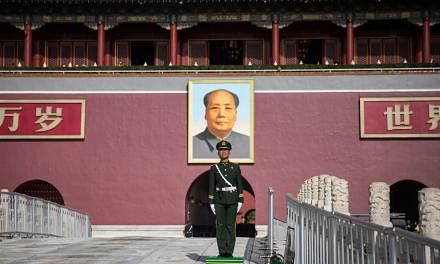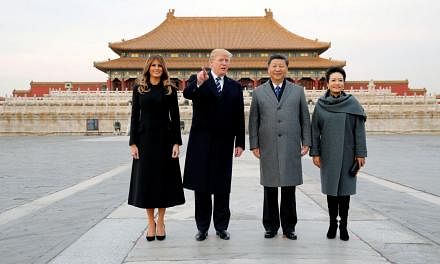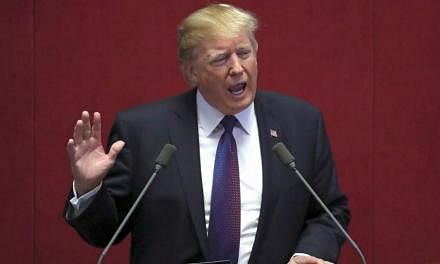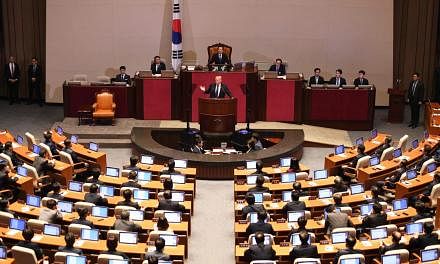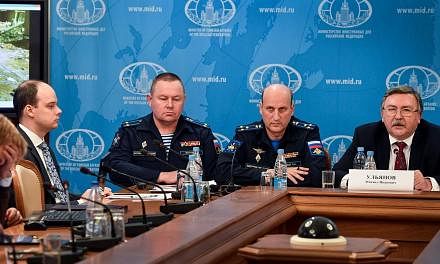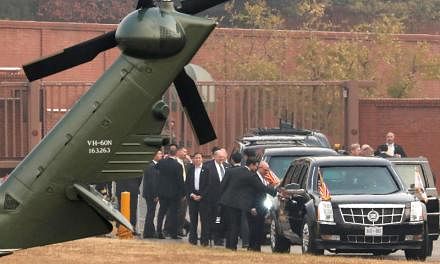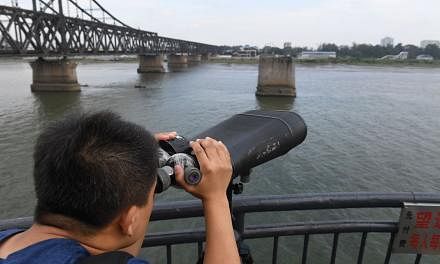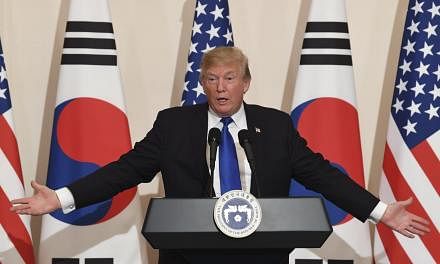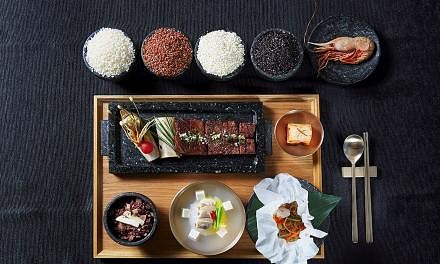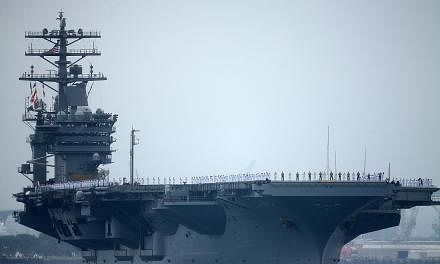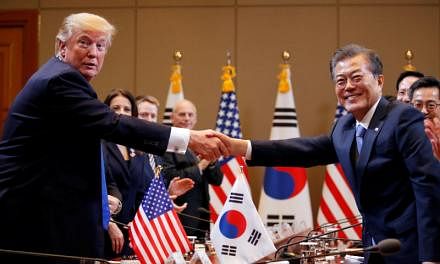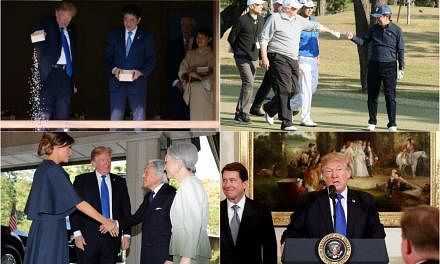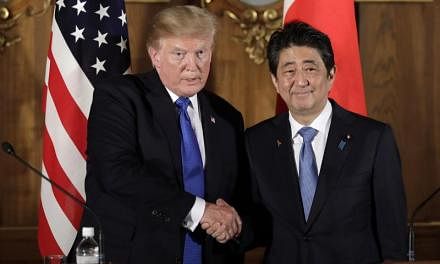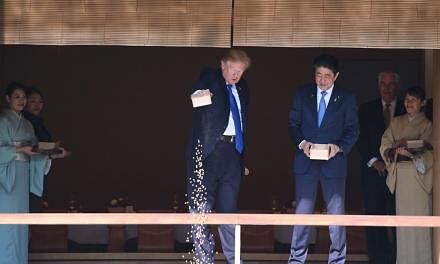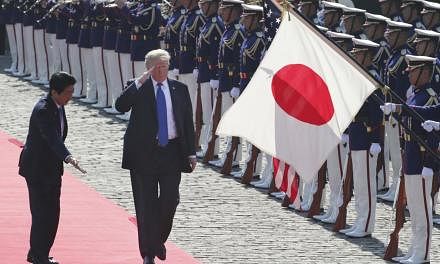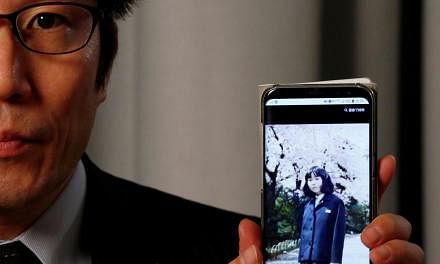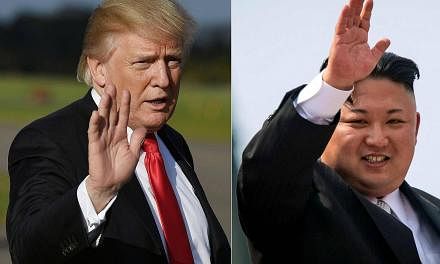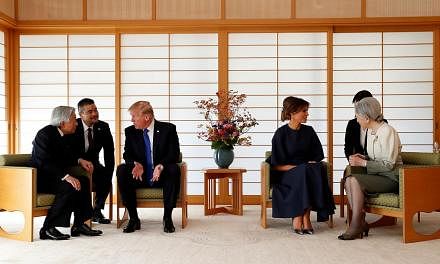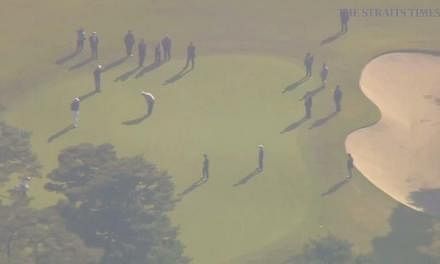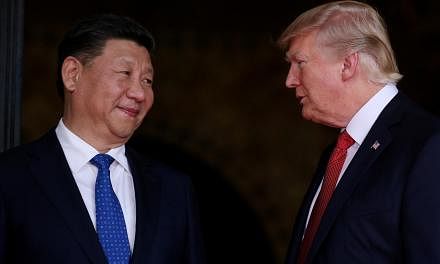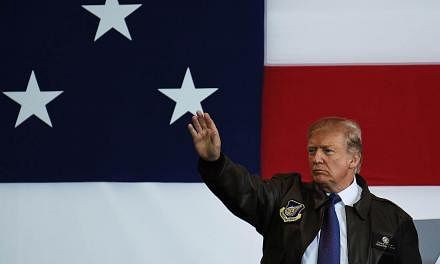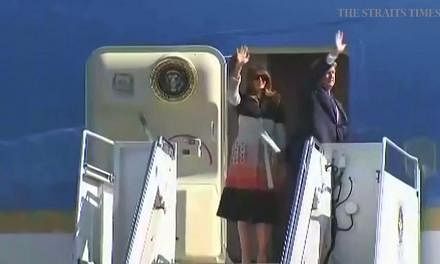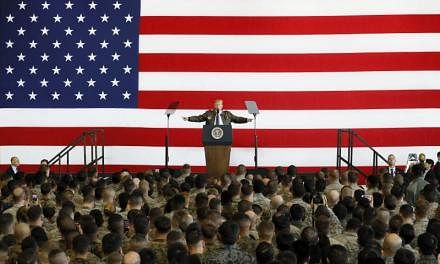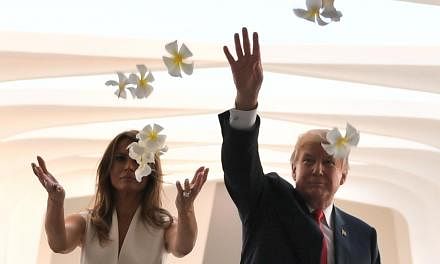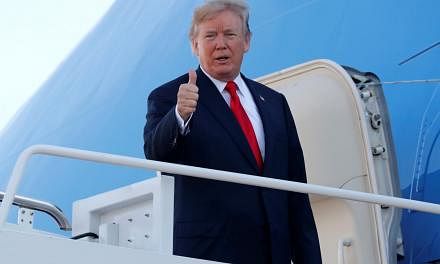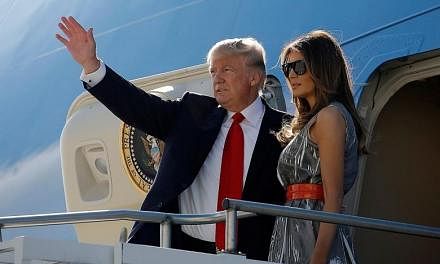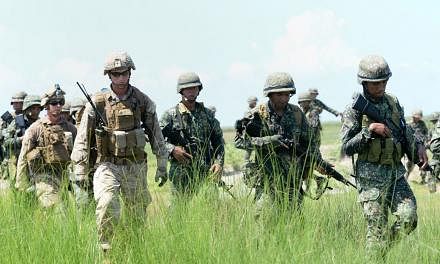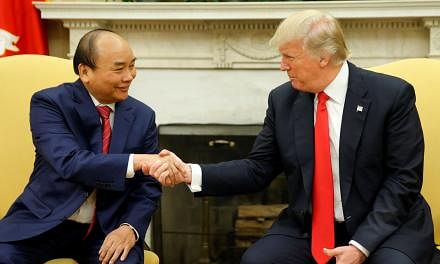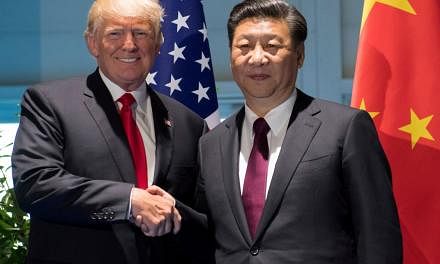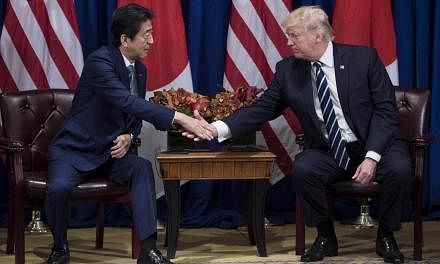TOKYO - Visiting US President Donald Trump said on Monday (Nov 6) that he expects Japan to shoot down any missiles fired by North Korea over its territory "once it completes the purchase of US military equipment".
But Japanese Prime Minister Shinzo Abe, standing beside him, offered a more measured take.
"If necessary we will do it, but in doing so, the United States and Japan will closely coordinate our actions." Mr Abe said during a joint press conference with the US leader.
The exchange came after reports in the Japanese media that Mr Trump had discussed, during his recent talks with South-east Asia leaders, why Japan as a "samurai warrior nation" had not shot down the two missiles lobbed by North Korea over Hokkaido into the Pacific Ocean this year.
Japan's official position has been that the two missiles had not posed direct danger to its territory, a stance Mr Abe reiterated on Monday. Missile alerts were sounded over wide regions of the nation's north and north-east when North Korea fired the missiles.
On day two of his five-nation Asia tour, Mr Trump made a strong pitch for US defence technology, noting how Saudi Arabia had succeeded in shooting down a Houthi missile fired from Yemen on Saturday (Nov 4). The missile was aimed at the Riyadh airport.
"It was a needle in the sky but we managed to hit it immediately and it exploded without damage," Mr Trump said.
"He will shoot them out of the sky when he completes the purchase of a lot of military equipment from the US," Mr Trump said of Mr Abe.
In response, Mr Abe said: "We definitely will purchase a lot of defence equipment from the United States. The North Korea situation is becoming very tough, the Asia-Pacific security situation is very tough, and so we qualitatively and quantitatively have to enhance our capabilities."
He added that Japan will acquire F-35 fighter jets, as well as Standard Missile 3 (SM-3) Block 2A missiles mounted on Aegis warships that can intercept ballistic missiles outside the earth's atmosphere by up to an altitude of 500km.
"The quality and quantity (of our defence equipment) must be enhanced, and in that process we will buy more from the US," he said.
Mr Trump is on his maiden tour of Asia as President. The marathon 12-day itinerary will also take him to South Korea, China, Vietnam and the Philippines.
He will attend high- level Asean-related meetings, as well as the Asia-Pacific Economic Cooperation (Apec) and the East Asia Summit.
The issues of North Korea and trade are expected to dominate his talks with leaders in the region, as he seeks to impress upon them that "time is running out" to deal with the missile crisis while reducing trade imbalances with the US.
Even though North Korea has not conducted any missile or nuclear tests since Sept 15, the regime's war of words with Mr Trump has continued unabated.
Mr Trump has referred to North Korean leader Kim Jong Un as "Little Rocket Man", while Pyongyang retaliated by calling Mr Trump a "dotard".
The North, meanwhile, has threatened to pulverise Japan , which has been in lockstep with the US over exerting maximum pressure to make Pyongyang relinquish its nuclear development and ballistic missile programmes.
Mr Abe vowed to continue to tighten the noose through unilateral sanctions, with a decision due on Tuesday (Nov 7) to freeze the assets on 35 North Korean entities and individuals.
On Monday (Nov 6) Mr Trump made no apologies for his strong rhetoric, saying again that the "era of strategic patience is over" and that "the very weak rhetoric" over the last 25 years had been clearly ineffective.
"Look where we are now."
The news conference came after Mr Trump met Mrs Sakie Yokota, the aged mother of Megumi Yokota, who was taken at age 13 in 1977 by a North Korean agent.
"It would be a tremendous signal if Kim Jong Un would send them back and that could be the start of something very very special," he said.
He also noted that the US has lost a "young wonderful man" of its own - Mr Otto Warmbier, who died at age 22 in July after being imprisoned in North Korea last year for the alleged theft of a propaganda poster.
"The United States stands in solidarity with the people of Japan against the North Korean menance," Mr Trump said.
"History has proven over and over that strong and free nations will always prevail over tyrants who oppress their people."
"North Koreans are good people under a very repressive regime, and I hope it all works out," he added.
The leaders of Japan and the US also discussed trade, a point they have publicly disagreed on, with Japan championing multilateral deals including the Trans-Pacific Partnership (TPP) framework. Mr Trump in one of his first acts since taking office in January, pulled the US out of the TPP.
Talks are ongoing for a bilateral free trade agreement between the two nations, and Washington said on Monday that the world's biggest and third-biggest economy will sort out their differences to establish a rules-based order in trade for the region.
Mr Trump said he wants to "achieve a fair, free and reciprocal trading relationship" with Japan. Last year (2016), the US trade deficit in goods with Japan had come up to US$68.9 billion.
"We seek equal and reliable access for American exports to Japan's markets in order to eliminate our chronic trade imbalances and deficits with Japan," Mr Trump said.
Mr Abe, however, only spoke in broad terms without going into how these deficits can be reduced. While he said the US and Japan will work together in bilateral trade, he emphasised that both nations will "lead in the high standards rules-making in trade and investment broadly in the Asia Pacific".
"We will see to it that Japan and the US can lead the region, and eventually global economic growth, in a cumulative effort to establish fair and effective economic order."
